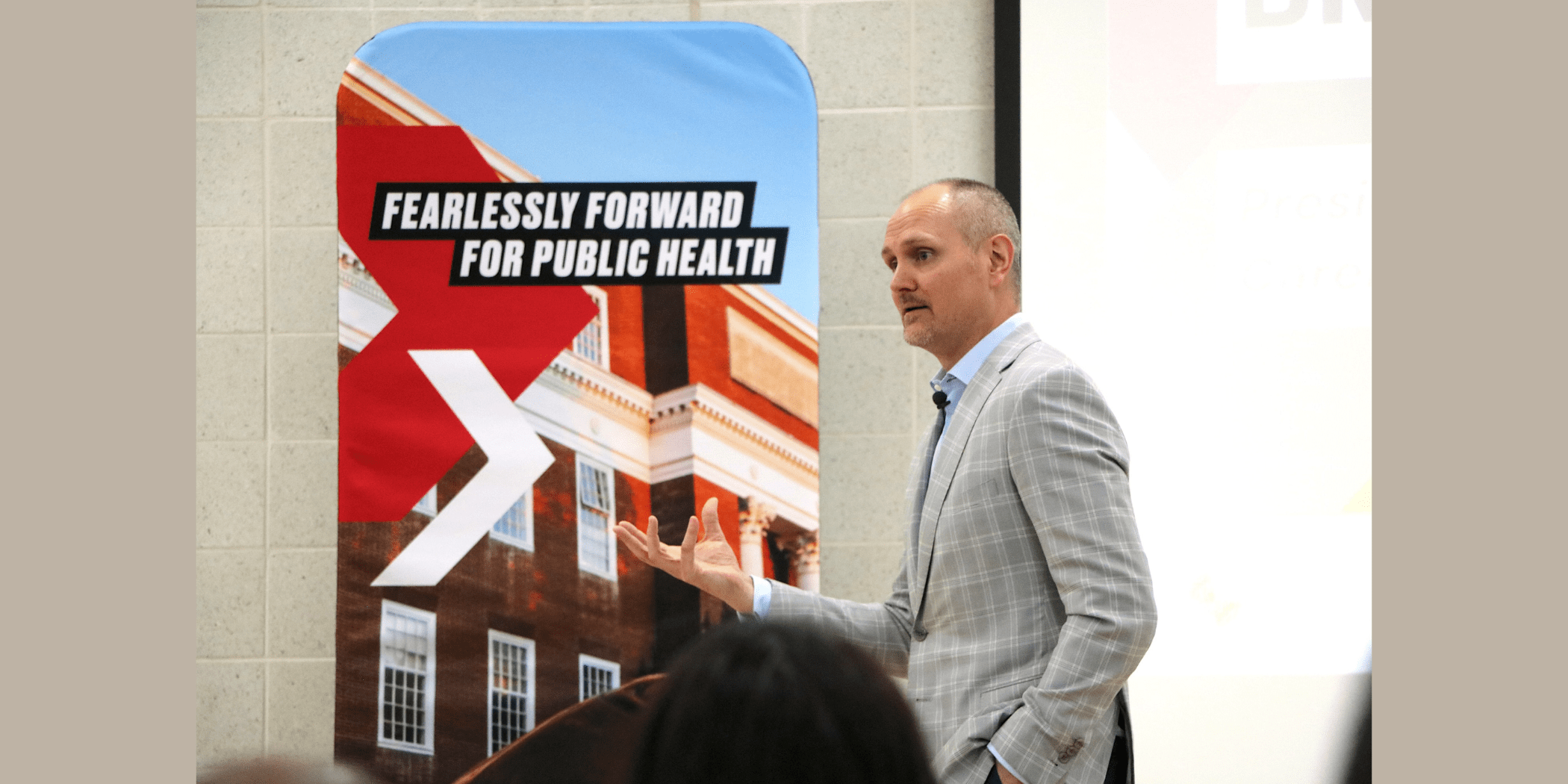
Brian Pieninck started his career in a storage room, as an IT contractor without a college degree, learning his job as he went. It’s been years since then, but the CareFirst BlueCross BlueShield president and CEO says the lessons from that time have remained.
Presenting to a packed room of more than 75 students, faculty and staff on March 12 as part of a UMD School of Public Health Dean’s Lecture, Pieninck shared his journey from a first-generation college student to leading one of the nation's largest not-for-profit healthcare insurers. The event began with an introduction from UMD President Darryll J. Pines.
“Brian has been pursuing a vision of advancing opportunities through both health and economic well-being,” Pines said, before handing the floor to Pieninck.
In a wide-ranging discussion, Pieninck shared several tips for audience members:
Success is about working hard and learning, but also about circumstance.
Pieninck’s origin story, in many ways, began with his mother’s “insatiable love of learning,” he said. “She knows a lot, she learns a lot, she’s on a learning journey but she never went to college.”
As his parents tracked every dollar, saving to help their sons have the opportunities they didn’t, Pieninck learned that “environment and circumstances matter,” he said. At that IT job and other early positions, people believed in and invested in him – and those made the difference.
“As much as I was willing to work, I could find success on the other side of the equation [but] circumstances have to be right for that to be true.” He now works to help create those circumstances for people who bring the talent but haven’t had opportunities, understanding that “there’s a myth of meritocracy that those opportunities exist equally … and it’s not demonstrably true.”
When it comes to improving healthcare, look at population health.
Pieninck said his approach was to look at the big picture of what makes up a person’s life – from public transportation to job opportunities to clean water to food security – and to understand how those factors contribute to the individual. Population health often involves public/private partnerships and groups working collaboratively to find solutions, he said.
CareFirst BlueCross BlueShield has been working deeply in West Baltimore, for example, to bring career opportunities in the organization to their neighborhood, so aspects like transportation become lesser factors, Pieninck said.
“We benefit when our communities thrive,” says Pieninck as he discussed the importance for CareFirst BlueCross BlueShield to connect with communities and to better understand health needs. Last year CareFirst BlueCross BlueShield employees completed nearly 90,000 volunteer hours in the Washington D.C., Maryland and Virginia area. “It’s not just the right thing to do, it’s the smart thing to do.”
AI is the tool of the future. Learn to use it wisely.
Pieninck sees potential and pitfalls in AI to solve healthcare problems. For example, AI could give a patient their likely cost for care before the care happens, rather than waiting for a bill of an unknown amount. He recommended people learn about AI for themselves and be part of the conversation about how AI is used.
“Have an opinion. Have a firsthand perspective,” he said. “How would you want other people to use it on your behalf? … We have to think about the confluence of what people can uniquely do and do well and what technology could potentially enable and determine the right balance between the two.” The technology, he said, will be a key factor on a global scale in the near future.
Hear directly from Brian Pieninck from our IG reel.